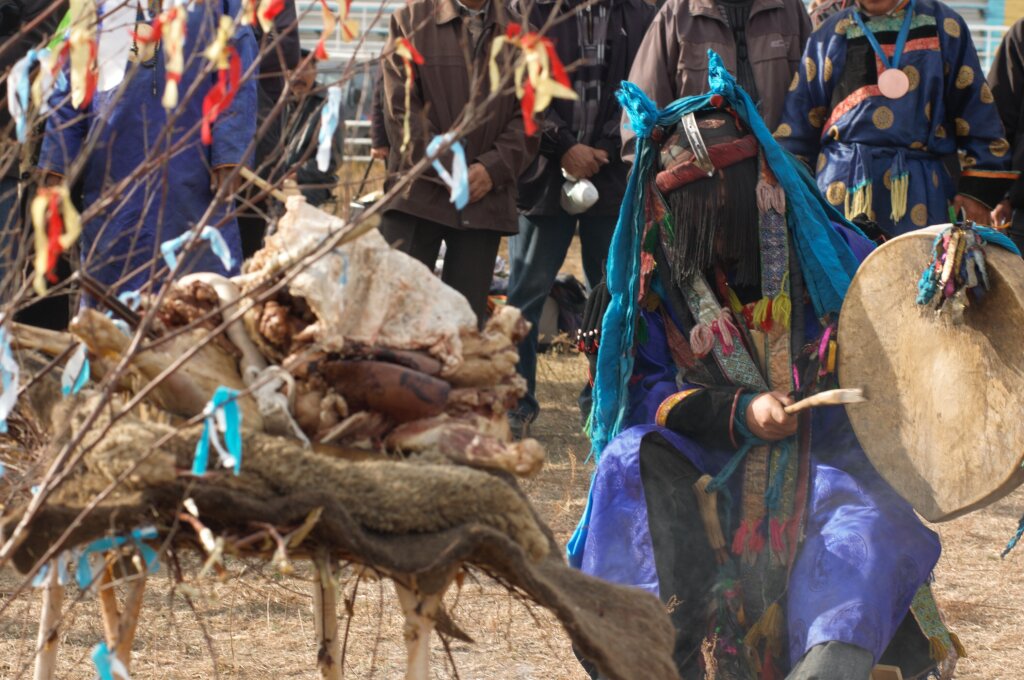This event will be hosted in hybrid format. RSVP to attend in person. Register for the Zoom meeting.
While the collapse of the Soviet Union may have been unthinkable until it actually happened, it is clear that there were significant shifts in Soviet popular culture in the 70’s and 80’s that shaped what came after the collapse. In the 1970’s and 80’s, Buryat social scientists, trained and employed at Soviet academic institutions, began publishing a surprising number of books on Buryat shamanism, even though such practices should have long since been relegated to the past. By the early 90’s, these same scholars saw shamanism as a source of authentic Buryat tradition from which post-Soviet Buryat and Central Asian society would be renewed. Although Buryat shamanism never became a “national ideology” their texts provided the basis for the actual revival of shamanic practices. Examining the way in which late Soviet academic discourses transformed into post-Soviet shamanic practices enables us to see the ways in which Soviet institutions undermined their own projects, and at the same time, profoundly shaped the projects that sought to replace and supersede them.
Justine Buck Quijada is Associate Professor in the Department of Religion at Wesleyan University, and the author of Buddhists, Shamans and Soviets: Rituals of History in Post-Soviet Buryatia (Oxford 2019).



